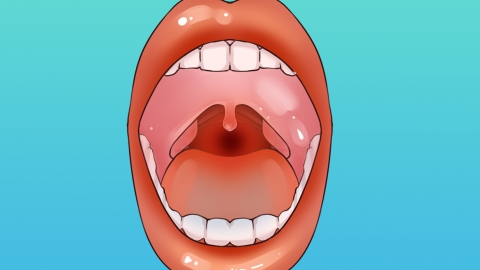What should not be eaten when having a sore throat?
Generally speaking, the throat refers to the pharynx. When experiencing pharyngeal pain, one should avoid consuming chili peppers, Sichuan peppercorns, braised pork, lemons, ice cream, and similar foods. It is also not advisable to blindly take medications such as codeine phosphate tablets, dextromethorphan hydrobromide tablets, amoxicillin capsules, ribavirin tablets, or ibuprofen tablets. Detailed explanations are as follows:

I. Foods
1. Chili Peppers
Chili peppers contain capsaicin, a substance with strong irritant properties. After consumption, capsaicin can irritate the mucous membranes of the throat, possibly causing increased mucosal congestion and edema, thereby significantly worsening the symptoms of pharyngeal pain.
2. Sichuan Peppercorns
Sichuan peppercorns have a strong numbing sensation and pungent odor. Their components can irritate the throat mucosa, increasing mucosal sensitivity and potentially triggering or worsening throat pain. They may also affect normal physiological functions of the throat, causing persistent discomfort.
3. Braised Pork
Braised pork is quite greasy. The oils in this food may adhere to the throat area, not only possibly worsening the pain but also potentially causing nausea, acid reflux, and other discomforts.
4. Lemons
Lemons are acidic fruits. The citric acid they contain may irritate the throat mucosa, causing increased mucus production, thereby worsening discomfort. Lemons should be consumed less during pharyngeal pain.
5. Ice Cream
Ice cream is extremely cold. Consuming it may cause sudden constriction of blood vessels in the throat, impeding local blood circulation, reducing throat resistance, and easily aggravating inflammation. Additionally, the sugar and additives in ice cream may irritate the throat mucosa, increasing throat discomfort and potentially making the pain more pronounced.
II. Medications
1. Codeine Phosphate Tablets
Codeine phosphate tablets are potent antitussives that can quickly suppress coughing. However, long-term use may inhibit the throat's natural expectoration mechanism, leading to mucus accumulation and worsening throat discomfort. Therefore, codeine phosphate tablets should be avoided when there is pharyngeal pain accompanied by phlegm.
2. Dextromethorphan Hydrobromide Tablets
Dextromethorphan hydrobromide tablets are also antitussive medications and similarly carry the risk of suppressing expectoration. During pharyngeal pain, if coughing is not severe and there is a large amount of phlegm, dextromethorphan hydrobromide tablets should be avoided.
3. Amoxicillin Capsules
Amoxicillin capsules are antibiotics primarily used to treat bacterial infections. However, not all cases of pharyngeal pain are caused by bacterial infection. Blind use of antibiotics cannot effectively treat throat pain and may lead to increased bacterial resistance. Therefore, amoxicillin capsules should not be used indiscriminately before a bacterial infection is diagnosed.
4. Ribavirin Tablets
Ribavirin tablets are antiviral medications mainly used to treat viral infections. However, not all cases of pharyngeal pain are caused by viral infection. Using ribavirin before confirming a viral infection may not achieve therapeutic effects and may cause unnecessary drug-related side effects.
5. Ibuprofen Tablets
Ibuprofen tablets are non-steroidal anti-inflammatory drugs with analgesic properties that can relieve pain caused by pharyngeal pain. However, long-term and excessive use of ibuprofen may cause kidney damage. Therefore, although ibuprofen can be used in moderation to relieve pain during pharyngeal discomfort, long-term and excessive use should be avoided.
In daily life, one should maintain good oral hygiene by developing the habit of rinsing the mouth after meals and brushing teeth in the morning and evening to reduce bacterial growth in the mouth. At the same time, indoor air should be kept humid, and humidifying devices can be used to prevent excessively dry air from irritating the throat mucosa.







